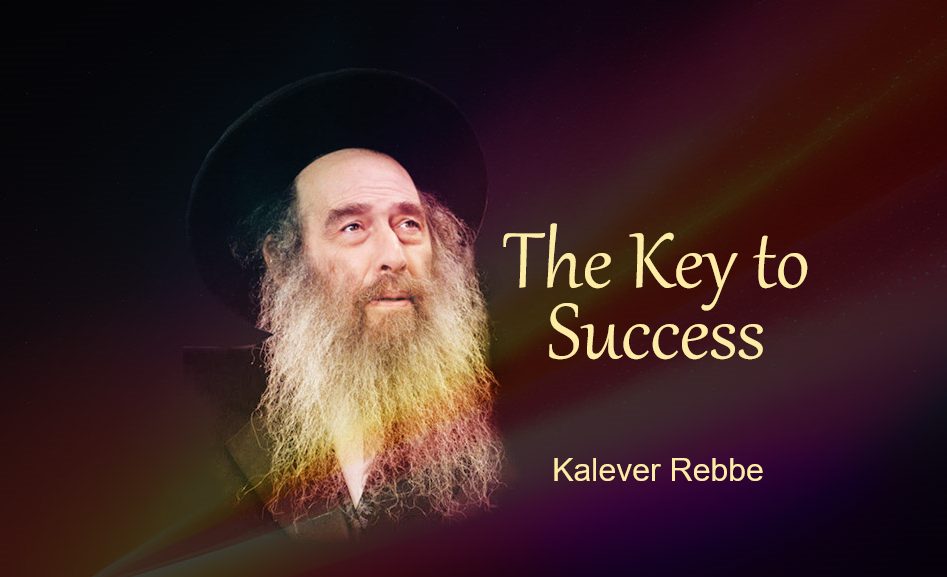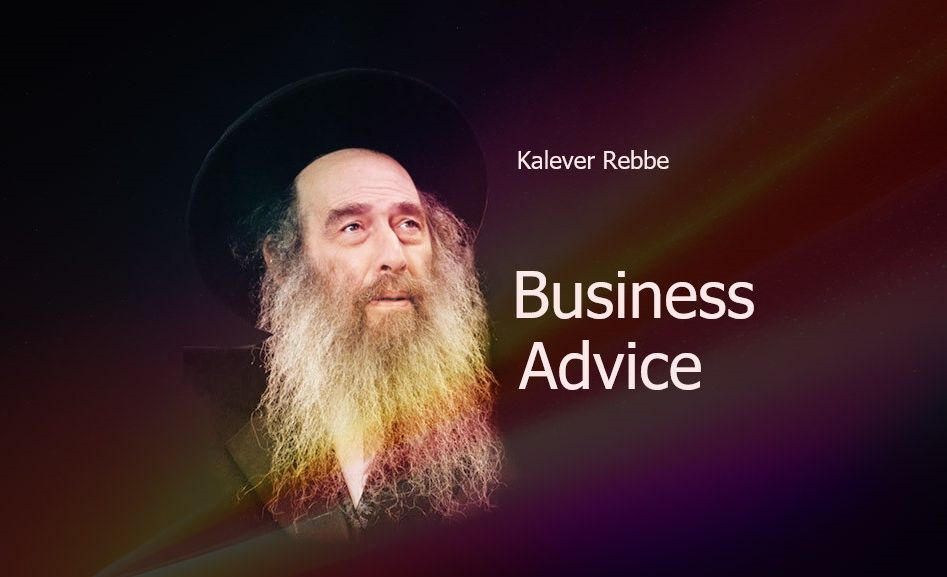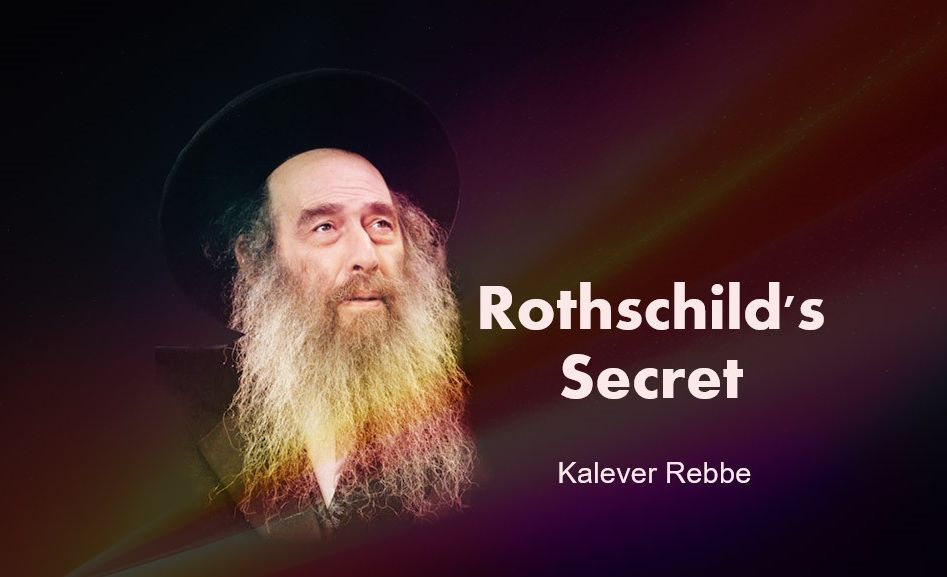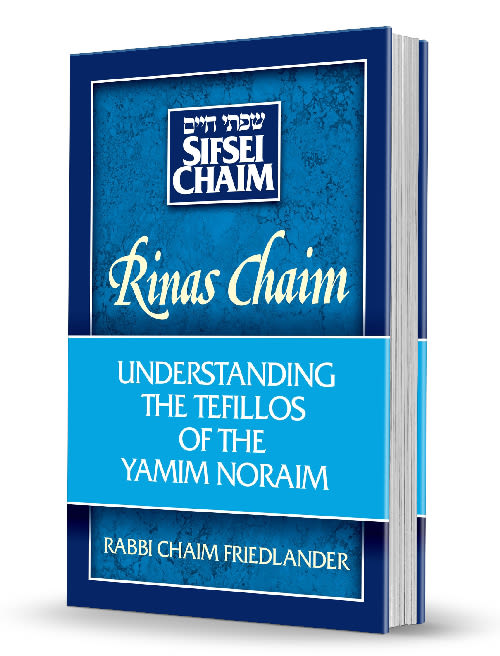
Who is Running the Hotel in Warsaw?
Isn't it odd that we celebrate Succot now, after Yom Kippur? Chronologically, Succot should come after Pesach when the Succot were created in the desert.

Why Now?
We are all about to celebrate the holiday of Sukkot. The commentators and seforim hakedoshim (holy writings/books) are bothered by the timing of this holiday:
The Succah represents, among other things, the Clouds of Glory that accompanied the Jews in the desert or, in a more literal sense, the actual dwellings that the Jews lived in while in the desert.
Why, then, do we celebrate Sukkot now, after Yom Kippur, and not after Pesach when, chronological, the Sukkot were created in the desert?
Learning Torah Is Not a Distraction
Over recent years, we have seen an incredible increase in Torah study throughout Jewish communities worldwide. However, the Yetzer Harah is constantly and continuously trying to challenge this commitment; to pull us away from studying Torah. Therefore, we must diligently fortify ourselves and protect our commitment; to remain steadfast in our desire for Torah learning.
One of the core deceitful tactics that the Yetzer Harah implements is to convince us that we cannot be pulled away from our work; that we simply cannot find time throughout the day, in the morning or the evening, given all the responsibilities that our livelihood places on us, to schedule time to learn Torah. Believing that you would love to learn but you just simply don’t have the time with all of life’s responsibilities is a façade created by the Yetzer Harah.
The antidote to this trickery, the cure to this deceit, is for a yid to clearly and completely believe that everything is with Divine intervention, Hashgachah Pratit. A yid must live with the emunah, the faith that everything he has in his life is from Hashem and that he has precisely everything that he is meant to have. When a yid internalizes this reality – the reality that his entire livelihood, that all his successes are not dependent on his actions alone but Hashem’s guidance and blessings, then he will inevitably realize that the time dedicated to mitzvot and Torah study can only increase those blessings and not, God forbid, detract from them.
You Cannot Push the Train
The Chofetz Chaim was once traveling in Warsaw and staying at a hotel owned by a Jew. One night, the Chofetz Chaim asked the owner, “Tell me, do you set aside time to learn Torah?” The owner answered, “I simply don’t have the time. I work from early in the morning to late in the evening. Every hour on the hour, a new train arrives carrying hundreds of visitors to Warsaw. I need to be there when they arrive to greet them and try to earn their business. If I am not there, some other hotel owner would get to them first and I would lose that business to one of my competitors.”
“Let me share with you an analogy that describes your behavior,” responded the Chofetz Chaim, “There was once a villager who had an incredibly important meeting with a government official in the capitol city. He boarded a train in his village to travel the long journey to the capital city. While traveling in the train, the villager became impatient. He began pushing the wall of the train car with all his might. The other travelers watched this is in amazement until finally someone asked him, ‘What do you think you are doing?’ The man, still pushing, answered, ‘I am in a rush to an important meeting! I need to get this train moving faster” The crowd that was observing this spectacle burst into laughter knowing quite well that pushing the train car was a fool’s errand. The train wasn’t going to move faster, because it is moving only with the force and pull of the engine car.”
After sharing this analogy, the Chofetz Chaim continued, “Hashem runs this world with a strength and ability we cannot even begin to fathom. Hashem sustains the entire world and everything that is within it. And you think that your simple efforts can impact your livelihood?”
The owner understood the message: his livelihood depended solely on the Will of Hashem; that everything in his life was sustained by Hashem and that his efforts in business, while required, were not a prerequisite for success. Therefore, he immediately began scheduling daily times to learn Torah.
At times, we see individuals who seem to benefit from being completely dedicated to their livelihood and abandon the idea of setting aside time to learn. However, this apparent success is only temporary. It is against the order of the spiritual world for someone to ignore the Torah and succeed. They can only lose.
What’s the Cure for Struggle
The Rebbe, Reb Yitzchak from Vorke, once turned to one of his Chassidim and probed, “Why don’t you set times throughout your day to learn Torah?”
“I struggle just to make a meager living,” answered the Chassid, “How can I find the time to study Torah?”
Reb Yitzchak answered, “When I was younger, I was hired to oversee a group of laborers. One time, I went to check in on the workers, and I found that a manger was beating one of the workers for not working well enough. Even while he was being beaten, this worker kept working. I watched in wonder. After the beating, I walked over to this worker and asked, ‘I don’t understand, why did you keep working while you were being beaten?’ This worker answered me, ‘I was being beaten for not working hard enough. If I stopped working completely, the beating would be even worse.”
The Rebbe concluded, “You are like this laborer. You are struggling to earn a living because you are not working for Hashem; you are not learning Torah; you’re focusing on all the wrong things. And what do you do to alleviate this ‘beating’? You continue not learning, and the struggle for a livelihood, therefore, continues. If you were to set aside time to learn, the struggle for a livelihood would ease.”
Faith in the Desert
This was the faith that the yidden had when they left Egypt. Leaving Egypt for a desolate dessert required self-sacrifice, it required a complete and pure faith that Hashem sustains the world and that if they are fulfilling the Will of Hashem, they will be able to tap into that sustenance, to receive a flow of blessings. They would not lose out. They will be safe. They will be taken care of.
When they were in the desert, they lived in Sukkot, under the protection of the Clouds of Glory. Every family had their own Succah, and each family miraculously received what they needed to not only survive but thrive. They had nothing to worry about, nothing to fear, their lifestyle and needs were met so that they could learn Torah for the entirety of their 40 years in the desert, as Hashem wanted then from them. All other concerns and worries were miraculously taken care of by Hashem.
Therefore, we are commanded to observe the holiday of Sukkot after Yom Kippur and not after Pesach, when the miracle of the Clouds of Glory and the physical construction of the Sukkot took place.
During Yom Kippur, it is easy to be inspired, to find a new sense of commitment to Hashem. We look at our lives and decided to change our behaviors; to observe the mitzvot and learn Torah with a reinvigorated sense of commitment.
However, the Yetzer Harah will challenge this commitment and try to convince you that you don’t have the time or luxury to learn Torah and observe the mitzvot properly. You need to focus on earning a living and all the struggles that come along with that. However, the lesson of Succah reinforces the reality that everything in our lives, every detail, is from Hashem and with His blessings. Every struggle, challenge and obstacle are the result of not aligning our behavior with His Will. The Succah reminds us, that if we commit ourselves to the Torah and mitzvot, then we will be miraculously sustained by Hashem and his blessings.
As we sit in our Sukkot, we should internalize this lesson of faith; recommit ourselves to learn Torah every day worry free. By doing so, may each of you merit Hashem’s blessings for livelihood, happiness, and health. Amen.











